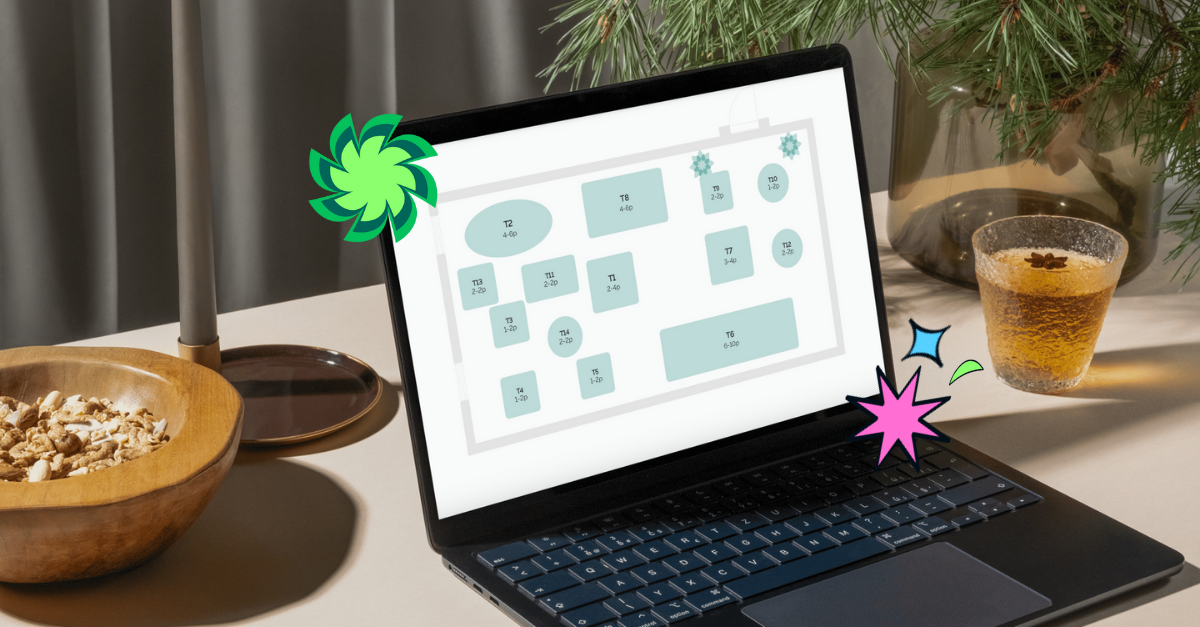With at least 48% of restaurant bookings occurring online, choosing a primary booking platform is an important — and tricky — decision for any restaurant owner or manager. Some restaurants use multiple platforms to manage their bookings, but you’ll need to focus on just one to create a precise and effective central strategy.
There are many different platforms around, each with their own unique benefits. To help you whittle down your options, we’ve compiled this list of some suggested features and qualities you should look for when selecting a primary booking management system for your restaurant.
1. It’s easy to use (for diners and staff)
It might sound like a no-brainer, but you must be able to demo the platform from both your own perspective as a staff member and that of a diner looking to book a table.
Customers should be presented with a clean, straightforward interface that allows them to quickly and easily book a table at your restaurant, whether that’s on mobile or a desktop.
For you and your staff, your booking platform must give you all the key information you need for your daily service at a glance, as well as easy back-end tools for managing bookings, editing covers, and tweaking seating plans.
2. Integration with other systems
Technology within the restaurant industry is constantly evolving, so your restaurant booking system needs to integrate with your other digital channels seamlessly.
From your POS systems and CRM tools to your email marketing platforms, your booking system must play a frictionless role within your wider tech stack. Otherwise, you risk giving your diners a disconnected customer experience.
3. Real-time table management
Hospitality is a notoriously fast-paced industry, so your restaurant needs a reservation management system that can keep up.
Without the ability to manage bookings and make changes in real time, your restaurant risks double-booking or creating gaps in the flow of your service. No two days are ever the same in a restaurant, so your booking platform needs to be suitably agile, whether you’re dealing with last-minute booking changes or seating plan switch-ups.
4. Data and reporting tools
A good restaurant booking platform helps you manage your table bookings. A great restaurant booking platform serves you data-driven insights that help you increase your table bookings.
There’s a wealth of data to dive into that can provide valuable learnings for your restaurant, such as your most popular booking slots or least-ordered dishes.
An expert booking system should pull out these vital statistics for you, presenting them clearly and concisely to give you a snapshot of your performance alongside tips and tricks for driving even more revenue.
5. Social media booking widgets
With so many diners discovering new restaurants through social media, making their journey from discovery to booking as smooth as possible is key.
If it’s not easy for customers to book a table at your restaurant through your Instagram or Facebook profile, you risk losing them to your competitors who are making it easy.
When assessing different restaurant management tools, check that they offer some kind of social media booking widget, so you can quickly convert likes and views into filled seats.
6. No-show prevention tools and policies
It’s no secret that no-shows are one of the hospitality industry’s biggest enduring challenges, costing you valuable time and money. That’s why your primary booking platform must have tools and measures you can put in place to reduce the risk of diners not showing up to their bookings.
There are several ways to combat no-shows, such as credit card guarantees or text reminders, so check that your chosen platform gives you multiple options.
7. Options to customise your branding
Any third-party restaurant booking platform you use will, of course, have its own visual identity. However, you should still look for a provider that gives you some options to customise elements such as your restaurant listing page and booking widget.
A strong brand identity is a big part of driving brand awareness, so keeping your visual assets consistent across every aspect of the diner’s booking journey can help you stay top of mind in the future.
8. Top-notch customer service
Your primary restaurant management system needs to have not only great tech but a great customer support team behind it.
Not only will an expert customer success team be able to answer any questions you have when using the platform, but they will also be on hand to offer guidance and advice for you to attract even more customers to your restaurant.
These real-life human insights might be exactly what you need to take your restaurant to the next level.
If you’re yet to encounter a booking platform that ticks all these boxes, look no further than TheFork Manager. Let the platform speak for itself by booking a demo today.











